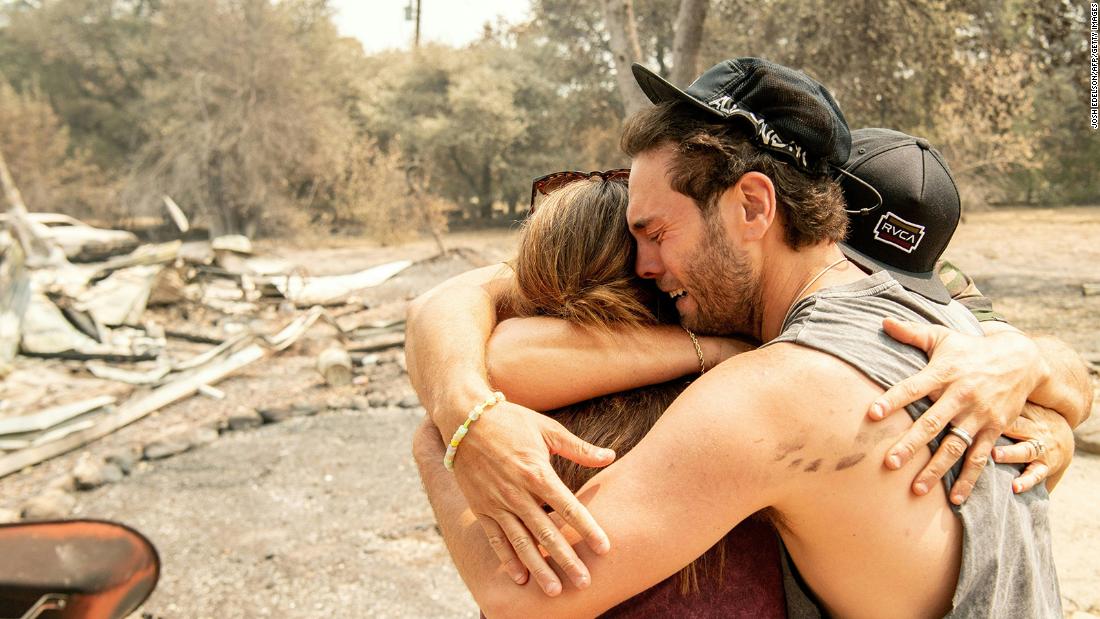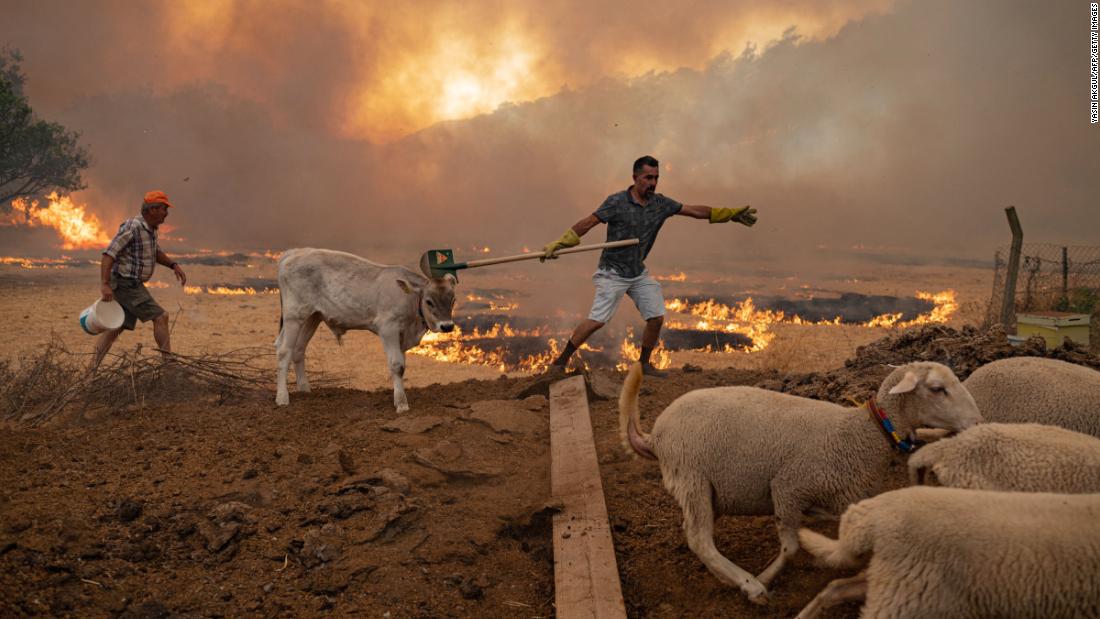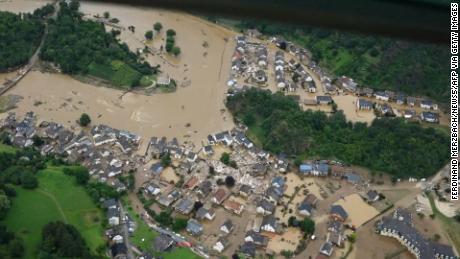
By Angela Fritz and Rachel Ramirez, CNN
Updated 4:24 AM ET, Mon August 9, 2021
(CNN)As the world battles historic droughts, landscape-altering wildfires and deadly floods, a landmark report from global scientists says the window is rapidly closing to cut our reliance on fossil fuels and avoid catastrophic changes that would transform life as we know it.The state-of-the-science report from the United Nations’ Intergovernmental Panel on Climate Change says the world has rapidly warmed 1.1 degrees Celsius higher than pre-industrial levels, and is now careening toward 1.5 degrees — a critical threshold that world leaders agreed warming should remain below to avoid worsening impacts.Only by making deep cuts to greenhouse gas emissions, while also removing carbon dioxide from the atmosphere, can we halt the precipitous trend.”Bottom line is that we have zero years left to avoid dangerous climate change, because it’s here,” Michael E. Mann, a lead author of the IPCC’s 2001 report, told CNN.Unlike previous assessments, Monday’s report concludes it is “unequivocal” that humans have caused the climate crisis and confirms that “widespread and rapid changes” have already occurred, some of them irreversibly.That is due in part to the breakneck pace at which the planet has been recently warming, faster than scientists have previously observed. Since 2018, when the panel published a special report on the significance of 1.5-degrees, greenhouse gas emissions have continued mostly unabated and have pushed global temperatures higher.Enter your email to sign up for the Wonder Theory newsletter.close dialog

Want to stay updated on the latest space and science news?We’ve got you.Sign Me UpBy subscribing you agree to ourprivacy policy.Even under the IPCC’s most optimistic scenario, in which the world’s emissions begin to drop sharply today and are reduced to net zero by 2050, global temperature will still peak above the 1.5-degree threshold before falling.In a statement, UN Secretary-General António Guterres called the report “a code red for humanity,” and noted the 1.5-degree threshold is “perilously close.””The only way to prevent exceeding this threshold is by urgently stepping up our efforts, and pursuing the most ambitious path,” Guterres said.https://ix.cnn.io/dailygraphics/graphics/20210808-ipcc-co2-scenarios-ai/index.html?initialWidth=930&childId=responsive-embed-20210808-ipcc-co2-scenarios-ai&parentTitle=IPCC%20climate%20change%20report%3A%20Earth%20is%20warming%20faster%20than%20scientists%20previously%20thought%20scientists%20say%2C%20and%20the%20window%20is%20closing%20to%20avoid%20catastrophic%20outcomes%20-%20CNN&parentUrl=https%3A%2F%2Fwww.cnn.com%2F2021%2F08%2F09%2Fworld%2Fglobal-climate-change-report-un-ipcc%2Findex.htmlThe IPCC report comes just three months before the UN-led international climate change talks, during which global leaders are expected to strengthen their commitments to cutting greenhouse gas emissions.

Key takeaways from the UN report on the climate crisisThough some countries have pledged stricter cuts since the 2015 Paris Agreement, many have missed deadlines to do so, and there is still a significant gap between what leaders are promising and what’s needed by 2030.”From a scientific perspective, every degree, every part of a degree, every half of a degree matters in terms of limiting the impacts that we will see from climate change,” Ko Barrett, the former vice chair of the IPCC, told CNN. “So at whatever level countries decide is what they’re aiming for, there are benefits and there are consequences to choosing those limits.”Dave Reay, the director of the Edinburgh Climate Change Institute, said world leaders “must have the findings of this report seared into their minds” at the November conference and take urgent action.”This is not just another scientific report,” Reay said. “This is hell and highwater writ large.” A man hurries to evacuate sheep from an advancing wildfire in Turkey on August 2.As computing power increases, scientists are more confident than ever in connecting the dots between the climate crisis and extreme weather, which for some regions — even at 1.1 degrees of warming — is already becoming unbearable.Michael Byrne, a climate researcher at the University of Oxford, said that’s what’s different about this report is “the effects of global warming are no longer in the distant future or in far-flung corners of the world.””We knew what was coming and now it’s here,” Byrne said.A heat wave that killed hundreds this summer in the US Northwest and British Columbia would have been “virtually impossible” without the climate crisis, researchers found. It made Hurricane Harvey’s devastating rainfall roughly three times more likely to occur and 15% more intense, scientists said. Harvey dumped more than 19 trillion gallons of water on Texas and Louisiana in 2017, triggering devastating floods in the Houston area.The IPCC says heavy rainfall that used to occur once every 10 years now occurs 30% more frequently.
A man hurries to evacuate sheep from an advancing wildfire in Turkey on August 2.As computing power increases, scientists are more confident than ever in connecting the dots between the climate crisis and extreme weather, which for some regions — even at 1.1 degrees of warming — is already becoming unbearable.Michael Byrne, a climate researcher at the University of Oxford, said that’s what’s different about this report is “the effects of global warming are no longer in the distant future or in far-flung corners of the world.””We knew what was coming and now it’s here,” Byrne said.A heat wave that killed hundreds this summer in the US Northwest and British Columbia would have been “virtually impossible” without the climate crisis, researchers found. It made Hurricane Harvey’s devastating rainfall roughly three times more likely to occur and 15% more intense, scientists said. Harvey dumped more than 19 trillion gallons of water on Texas and Louisiana in 2017, triggering devastating floods in the Houston area.The IPCC says heavy rainfall that used to occur once every 10 years now occurs 30% more frequently.


